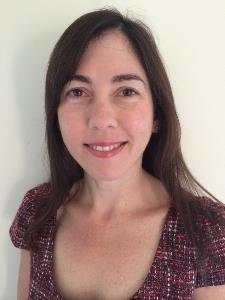#ThisIsAPlasticSurgeon - Rebecca Dunlop
6th March 2020
Over the past few months we asked some of our members various questions about their careers in plastic surgery, their thoughts on innovation and what advice they may have for others, both professional and public. The resulting profiles demonstrate the diversity of the specialty and those within it.
If you are a BAPRAS member and would like to be included in this series please contact emma.brighton@bapras.org.uk.
 Rebecca Dunlop
Rebecca Dunlop
What or who inspired you to become a plastic surgeon?
I remember the case that inspired me to become a Plastic Surgeon: whilst at Medical School in Oxford, I watched ex-BAPRAS President Tim Goodacre perform a static sling procedure (tissue is taken from the thigh and placed into the face) to restore oral continence to a lady with facial palsy: she was a retired academic who enjoyed going to lunch with her friends and though functioning well, had a terminal cancer diagnosis. This relatively simple procedure enabled her to continue enjoying her social life without embarrassment for the time she had left. I loved the holistic approach of enhancing a patient’s life rather than simply prolonging it and still find that a hugely satisfying part of my job.
Who have been inspirational figures across your career and why?
I have met so many inspirational plastic surgeons both in the UK and abroad during my career and training. One is still my mentor: David Caminer from Sydney, with whom I worked whilst on fellowship. He was so particular with his own work, every suture (stitch) mattered and every case took as long as was needed to get it just right. That was 6 years ago and I can still feel his presence over my shoulder in the operating theatre sometimes telling me to make a small adjustment or change until I am completely happy with the result.
Tell us about your most rewarding or challenging case
I will always remember one particular case from my training years in Dublin- an 11-day-old baby with a life-threatening necrotising infection on his buttock (a bacterial infection that affects the tissue beneath the skin and surrounding muscles and organs). He was deteriorating fast and in grave danger, the first child of young parents. I called my consultant, Patricia Eadie, who came straight in and we took him to theatre immediately. There had already been progression of the infection and we had to excise a large piece of skin and underlying tissue, but the baby was well supported in the ITU and survived, eventually healing with a skin graft and being discharged home. He will be 10 years old now, maybe with brothers and sisters and hopefully living a normal life. It’s fantastic and deeply moving when the whole team comes together to save a life and everything works out well for our patients and their families.
What one piece of advice would you give to someone starting out in their plastic surgery career?
Being a plastic surgeon is such a privilege. During training and working you meet so many amazing individuals that it can make you feel a bit unsure of your place in it all, but I would encourage any others with an interest to join in: there is room for all sorts of plastic surgeons and so much important work to be done. Not everyone saves lives or produces ground-breaking research, it’s just as important to treat the ordinary patients every day.
What are the key things that people need to consider before making the decision to go ahead with cosmetic surgery?
When considering cosmetic surgery, patients should remember that this is never urgent: wait until you are absolutely sure that it is what you want and can afford and whether you are willing to accept the risks. A surgeon with integrity will be truthful with you about risks- if it sounds too good to be true, it probably is!
How can patients ensure they are going to receive safe cosmetic surgery from a qualified plastic surgeon?
It is still challenging for patients to work out how well qualified and experienced a surgeon is to perform plastic surgery. My advice is to check the GMC specialist register: a qualified surgeon will be on this register as a ‘Plastic Surgeon’ and should also be a full member of BAPRAS and/or BAAPS, which can be checked on these websites in the Find a Member section (if in doubt, call the Secretariat on 0207 831 5161). It is still important to have a consultation with your surgeon where you have plenty of time to ask questions. All surgeons should see each patient for major plastic Surgery at least twice pre-op and insist on a ‘cooling off‘ period.
What do you believe have been the biggest threats to plastic surgery patient safety across this period?
I think that one of the biggest threats to plastic surgery safety in the cosmetic sector is that there is misleading information given by practitioners with very little experience or qualifications, sometimes working alone with no peer review or oversight. These practitioners may call themselves ‘Cosmetic’ or ‘Plastic’ without having been through the full training in any country and there is no legal restriction on the use of these terms. Hopefully things will improve with the new accreditation process, which will offer transparency to patients.
Read further profiles below
- Ruth Lester
- Shehan Hettiaratchy
- Rowan Pritchard Jones
- Abhilash Jain
- Nora Nugent
Back to list page